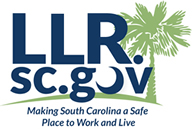Hello REALTORS®,
From time-to-time, I report on government budgets and taxes, especially during the government budget season. One of my reports in June highlighted the 23% increase in property tax revenues in Pickens County’s 2026 budget. Some members asked me if I thought that was a tax increase.
If your taxes increase—and most will—then it’s a tax increase. However, the tax rate did not increase, the assessed value increased. That was predictable considering the unprecedented increase in property values during the last 5 years.
Act 388
It’s important to note that the increase in assessed value could have been a lot higher had it not been for the tax reform legislation that your South Carolina REALTORS® Association championed in 2006. That legislation, commonly known as Act 388, capped reassessments of owner-occupied homes at 3% per year.
The reason Pickens County’s revenue went up by 23% is because they deferred the regular 5-year reassessment for two years during COVID. Plus, rental, commercial, and industrial properties are not capped.
That reassessment cap legislation has helped keep homeowners in their homes. In some states without a cap, homeowners are being forced out of their homes as their property values have risen. Look at your property tax bill. I know I could sell my home, which I bought in 2015, for a lot more than its assessed value.
Property Tax=Wealth Tax
The property tax is insidious because it is a wealth tax—it taxes the value of something we own, rather than something we buy or what we earn. Sales and income taxes occur once, but the property tax occurs every year. And every time the value of our property goes up, so does our tax bill. In some cases, that forces people to sell their homes because they can no longer afford the property taxes.
The history of the property tax assumes that owning property will result in income to the owner. That was true when most property owners were farmers or business owners. Of course, that is no longer true when it comes to our homes. Very few people work from home. Although in fairness, many Realtors do work from home.
And history proves that taxpayers will engage in tax avoidance, when they can. I was recently in Amsterdam, and a tour guide explained to me the history of the large red shutters on windows there. At one time, Amsterdam taxed the number of windows on homes and buildings. Property owners installed the red shutters to avoid the window tax—and to protest the tax.
A 23% incentive?
Home values are rising largely due to a supply/demand imbalance. Homebuilders have not built nearly enough homes in the last 20 years to keep pace with population growth.
I learned in high school economics that when the supply of something is constrained, the price goes up. But for our local governments, they have learned that if property values go up, so does property tax revenue. They have fewer homes to serve, but more revenue to serve them.
Next week, Anderson County Council will again consider a moratorium on new housing development. It’s hard to say that they don’t have an incentive to constrain the supply of housing.
What’s Ahead?
Even with their increased revenue, some local governments are facing a fiscal reckoning. Many have already enacted increased fees, and several are considering new fees, including impact fees.
Today, a new home pays more than $7,000 in water and sewer impact and tap fees. One sewer district is charging more than $10,000 just for sewer. And Anderson County is again asking voters for permission to levy a 1% sales tax to repave roads and replace failing bridges.
As the supply of new homes is constrained, the future opportunity to sell and resell those homes is lost. And as the disparity between assessed value and actual value increases, homeowners are becoming locked into their homes. That also will reduce the opportunity for Realtors to do what they do.
But those industry-specific concerns pale in comparison to a generation of our own children who won’t own a home, won’t build wealth, and won’t have the stability and security of raising a family among neighbors who also own their own homes.
Learn More About the Anderson County Penny Sales Tax Referendum
Your Western Upstate Association of REALTORS® will host an information session for members and the public to learn about the Anderson County penny sales tax referendum. Anderson County staff will be on hand to answer your questions about the referendum and how the money will be used. Drop in during the hours below and get your questions answered before your vote on November 4.
Drop-In Information Session
- Tuesday, September 23
- 3 p.m. until 7 p.m.
- Anderson County Civic Center
- 3027 Martin Luther King Jr. Blvd., Anderson
Support RPAC
RPAC is an important element of your Realtors Association’s advocacy program. I encourage you to support RPAC, and we make it easy to do so—we include a voluntary RPAC contribution on your annual dues renewal. Simply pay it and you have supported RPAC. If you want to do more than that modest amount, that’s easy too.
Michael Dey, Director of Government Affairs



